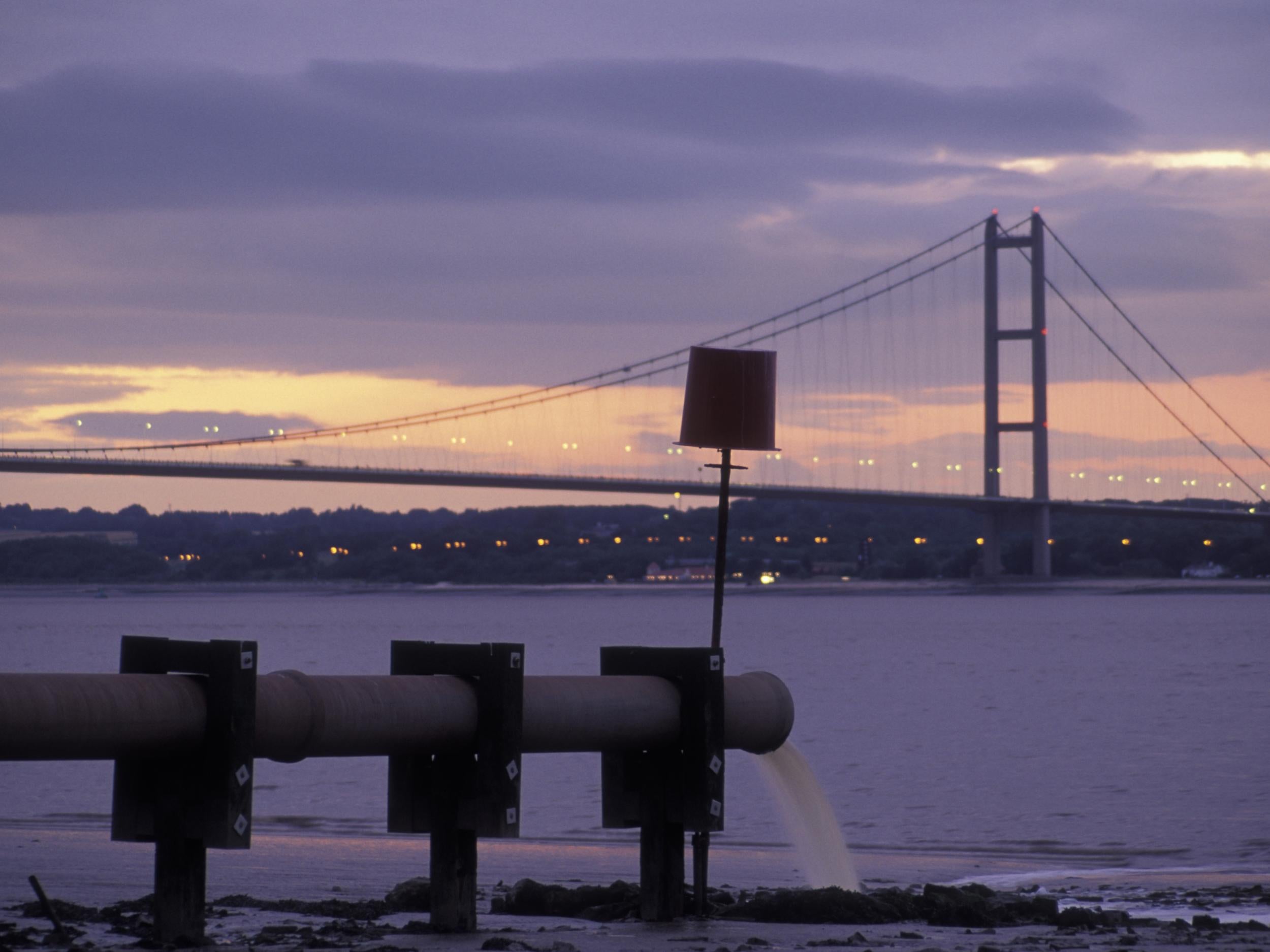Raw sewage flowing into more than third of rivers in England and Wales, WWF says
Four out of five rivers failing to achieve 'good ecological status'

Around 40% of rivers in England and Wales are polluted with sewage, which poses a severe risk to the health of humans and wildlife, according to a new report.
Conservation charity WWF's research concludes water companies and the government are failing to prevent “the most urgent environmental crises facing the UK today”.
Four out of five rivers in England and Wales are currently failing to achieve “good ecological status”, the charity said.
Nearly 18,000 licensed emergency sewer overflows are allowed to discharge raw sewage directly into the environment only during extreme rainfall, mainly into rivers.
Yet the WWF found these overflows are discharging far more frequently, with data suggesting that more than half of overflow sites spill sewage into rivers at least once a month and 14% at least once a week.
Sewage pollution causes rapid algae growth, starving rivers of the oxygen that insects, fish and other wildlife need to survive, which in turn also affects animals such as otters and kingfishers further up the food chain.
The bacteria, pathogens and parasites found in untreated sewage can also threaten people’s health, causing gastroenteritis, E.coli and salmonella.
A total of 1,902 pollution incidents were reported by the nine water and sewerage companies operating in England alone, a first rise in incidences since 2012.
There was also an increase in the most serious pollution incidents, all of which were associated with sewage.
South West Water reported by far the most sewage pollution incidents in 2016, with 115 sewage pollution incidents per 10,000km.
This was followed by Yorkshire Water which reported a rate of 46 and Northumbrian Water with 38.
The report warns this is likely to be the tip of the iceberg because wastewater legally discharged continuously from sewage treatment works — also managed by water companies — is not being treated to high enough standards to protect rivers.
The regions most affected by wastewater pollution are served by Thames Water, Southern Water, and Severn Trent Water.
“The problem of sewage pollution stems from multiple failings, including lack of proper planning and investment in our sewerage system; shortcomings in monitoring, risk assessments, operational practice and staff culture; and insufficient regulation,” said Ben Stafford, head of campaigns at WWF.
Many of us also contributing to the problem of sewer overflows by flushing items such as wet wipes and sanitary products, he added.
Water UK, which represents water companies, said the WWF report painted an “inaccurate picture”.
“There’s a genuine debate to be had about how we as a country are going to deal with sewage and drainage issues in future in a way which protects our environment, but WWF have muddied the waters with an inaccurate picture of what is going on,” a spokesperson said.
“The report over-states the link between the health of our rivers and how water companies treat and dispose of sewage. For example, it makes no distinction between serious pollution incidents and those which the Environment Agency says have ‘minimal impact’, giving a false impression of the extent of the problem.
“By 2020, the water industry will have spent around £25bn on environmental work to improve the quality of our waterways, and we always want to do better.”
Subscribe to Independent Premium to bookmark this article
Want to bookmark your favourite articles and stories to read or reference later? Start your Independent Premium subscription today.

Join our commenting forum
Join thought-provoking conversations, follow other Independent readers and see their replies